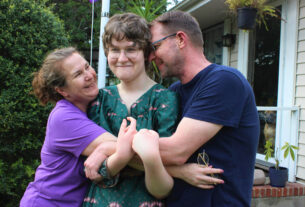Dyslexia is often misunderstood as a learning disorder, but it is not a disease—rather, it represents a different way of processing information. Both children and adults with dyslexia may face challenges in certain areas, such as reading, writing, and mathematics, but they can also have strengths in other areas such as creativity, problem-solving, and critical thinking. With the right support, individuals with dyslexia can thrive, leveraging their unique learning styles to excel in various fields.
What Dyslexia Means for Children and Adults
For both children and adults, dyslexia is a neurological condition that affects the brain’s ability to process written and spoken language. It can cause difficulties with decoding words, spelling, and comprehension, but it is not a reflection of intelligence. Many individuals with dyslexia are highly intelligent and have remarkable talents in areas like art, music, theatre, and business.
Famous dyslexics such as Albert Einstein, Richard Branson, and Roald Dahl have openly shared how their dyslexia did not hinder their success but, in some cases, fueled it. These individuals often credit their dyslexia with fostering unique problem-solving skills and creativity, traits that can lead to great achievements. This example can serve as an encouraging reminder to both children and adults with dyslexia that their learning differences do not limit their potential.
How Parents and Adults Can Support Dyslexics
For parents of children newly diagnosed with dyslexia, the first piece of advice is to remain positive. Dyslexia is not something to feel guilty about, nor is it a condition to “fix.” It is a genetic, neurological difference in how the brain processes language. Parents should focus on understanding their child’s strengths and weaknesses and embrace their unique abilities. Early intervention and support are key, and understanding the condition can significantly improve the child’s self-esteem and success.
In the same vein, adults with dyslexia may feel a mix of frustration and relief upon receiving a diagnosis later in life. Understanding that dyslexia is not a disorder, but rather a different approach to learning, can help adults with dyslexia reframe their challenges as opportunities for growth. Adults can seek resources such as workplace accommodations, dyslexia-specific reading programs, and coaching to help them succeed in both their personal and professional lives.
Empowering Through Knowledge and Action
The next step for both parents and adults with dyslexia is education. Understanding the science behind dyslexia and learning how to support it through strategies like multi-sensory learning can make a significant difference. Attending training sessions or information nights (such as those hosted by organizations like Assist Dyslexia) can help both parents and adults gain insight into effective strategies for managing the condition.
For children, fostering a positive relationship with reading is essential. Reading together, exploring books suited to the child’s reading level, and using resources like Barrington Stoke books—high-interest, low-reading-age novels—can make reading a more enjoyable and less stressful experience. Tools like paired reading, where the parent and child take turns reading aloud, can build confidence and alleviate some of the anxiety around reading independently. Additionally, the use of audiobooks can support comprehension and engagement, especially when paired with visual learning materials like DVDs, museum visits, and historical documentaries.
A Holistic Approach to Learning
For adults, finding ways to integrate dyslexia-friendly methods into everyday life is crucial. This may include using speech-to-text software, leveraging audio learning resources, or simplifying complex reading materials. Workplace accommodations, such as extra time for reading tasks or the use of assistive technology, can also provide the support needed to succeed. Social and professional networks for dyslexics can be invaluable in offering advice, sharing strategies, and providing emotional support.
Additionally, for both children and adults, hands-on experiences are particularly effective in helping dyslexic learners grasp complex concepts. Field trips, interactive exhibits, and educational videos can bring abstract subjects like history and science to life in ways that engage both visual and kinesthetic learners. For example, visiting historical sites like the Sean McDermott cottage in Kiltyclogher can provide a tangible, immersive experience that deepens historical knowledge beyond the confines of textbooks.
Advocacy and Support
Ultimately, the most important role for parents, caregivers, and adults with dyslexia is to become strong advocates. Being well-informed about the condition allows individuals to better navigate educational and professional environments and to seek the right resources for support. As awareness of dyslexia continues to grow, so too does the availability of tools and strategies designed to level the playing field for dyslexic individuals of all ages.
In conclusion, dyslexia may present challenges, but it also brings unique strengths. Whether for children or adults, understanding the condition and seeking appropriate support can help individuals with dyslexia unlock their full potential, leading to success in both academic and life pursuits.
Image by pressfoto



